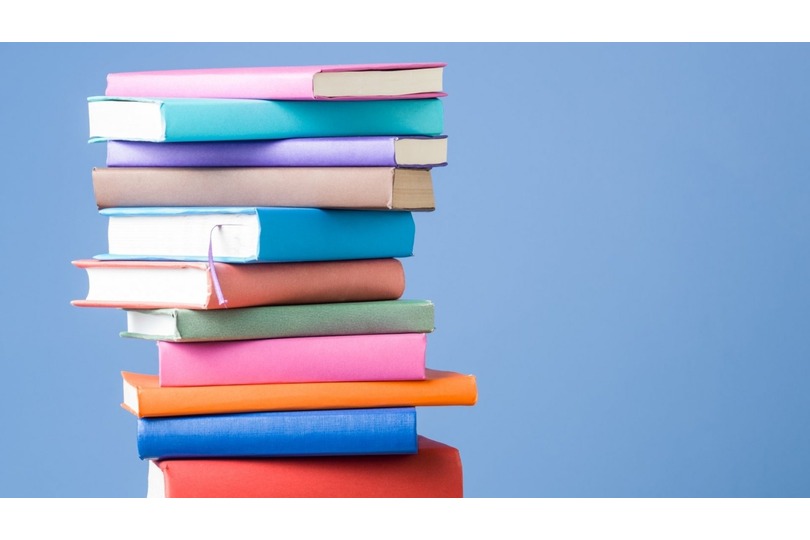The Year 2022 Had a Major Impact on English-Language Publishers in India
The year 2022 saw the highest sales for Penguin Random House (PRH) Indiaon Dec 28, 2022

Publishing, like many other industries, took some time to adjust to the pandemic's realities; distribution channels were disrupted and demand became more erratic in recent years; however, 2022 marked the year that publishing worldwide experienced a significant rebound, which had an impact on the major English-language publishers in India as well.
Chiki Sarkar, co-founder, and publisher of Juggernaut Books claims that this industry-wide recovery also involved a lot of lessons learned and occasionally, unpleasant choices. "Getting acclimated to working remotely" is one of the shifts that we saw across most publications, according to Sarkar. Some publishers downsized their offices.
Prudent financial management included more than just saving money on office space; it also showed in the more moderate advertising payments made to authors.
According to Sarkar, Juggernaut, a small publishing company, learned from West-demise lands earlier in 2022. Belt-tightening and keeping a careful check on expenditures became essential; placing significant bets on a few "celebrity authors" was perceived as a hazardous and ineffective business strategy.
Entrepreneur and influencer Ankur Warikoo's first nonfiction book, "Do Epic Shit," a collection of life teachings, was Juggernaut's biggest success of the year (including but not limited to advice on work ethic, personal finance et all). This was a 2021 title, but because of its steady sales—Sarkar thinks that they were in the 1.8–2 lakh range—it ended up being the year's best-performing title. Get Epic Shit Done, the book's sequel was published earlier this month.
Ankur Warikoo is unique in that, behind the T-shirt, jeans, grin, and social media know-how, Sarkar explains, "he is truly like a wise old uncle offering you advise, pulling on his own experiences."
Additionally, he consistently gives straightforward counsel that practically every reader can relate to. There are a few straightforward but crucial lessons for Indian publishing from Warikoo's meteoric success. One is the continued dominance of self-help/self-improvement in Indian markets. Two, there is a growing audience of this genre (as well as related subgenres like "soft business") in tier 2 and tier 3 cities, even in locations without bookstores (where Warikoo's success in these locations is mostly due to online sales). Three: It's advantageous to work with authors that have experience with social media marketing and building personal brands.
The year 2022 saw the highest sales for Penguin Random House (PRH) India. "According to Nandan Jha, executive VP (Sales, Product and Business Development) at PRH India, "The Seven Moons of Mauli Almeida" and "Tomb of Sand" by Geetanjali Shree, both of which were translated by Daisy Rockwell, were our two Booker winners. "A significant amount for English-language fiction, Tomb of Sand sold over 60,000 copies in India, and PRH published two editions of this book.
Over 55,000 copies of "The Wisdom Bridge," a parenting/self-help book with a spiritual bent by Kamlesh Patel, were also sold in the nonfiction category. Other notable blockbusters include Ashneer Grover's "Dogalapan," which has rocketed to the top of the bestsellers list since its debut this month, and Prakash Lyer's self-help/soft business book "How Come Nobody Told Them That" (there are plans for a Hindi version soon).
Jha asserts that since the epidemic, there has been an increase in demand for books on personal finance and financial guidance. For instance, since its publication in 2018, Penguin has sold 25,000 copies of "Coffee Can Investing" by Saurabh Mukher Jea. The predominance of this genre was a common feature among publishers.
Our nation is fixated on anything that might make them better, says Rahul Dixit, director (Sales) at HarperCollins In-Line. More than 20 or 30 of the Top 50 titles on Amazon at any one moment will be in the self-help category, focusing on improved finances and mental wellness.
Also emphasized by Dixit were the consistent sales of biographies and books of popular Indian history. For instance, HarperCollins sold several copies of Debashish Mukherji's biography of former prime minister VP Singh, "The Disruptor," and Aanchal Malhotra's book, "In the Language of Remembrance: The Inheritance of Partition," in 2022.
However, not everything is easy sailing. Publishers identified the significantly higher price of paper as a significant barrier. Because of the blow to our profits, books that we would typically sell at Rs 599 are now being offered for Rs 799, according to Sarkar.
Dixit claims that the "cost of paper is one of the biggest industry-wide challenges right now," making it difficult to set competitive book prices. Ironically, efforts to eliminate single-use plastics have also increased the usage of paper for packaging, raising expenses for publishers.
According to Dixit, "Ira Paan Company or any other FMCG behemoth purchases vast amounts of paper for packaging; they can afford to pay greater costs and they can pay upfront."
Publishers can't simply compete with that, Similar to this, several American and European businesses have recently partially shifted their publishing activities from China to India. This has increased prices for local customers like English-language publishers.
English-language publishers have had a successful year, but if this trend is to continue in the coming years, we'll need to see some original answers to issues like these.

.jpg)
.jpg)
.jpg)
.jpg)
.jpg)
.jpg)

.jpg)
.jpg)
.jpg)
.jpg)


_(1).jpg)
.jpg)










Sorry! No comment found for this post.